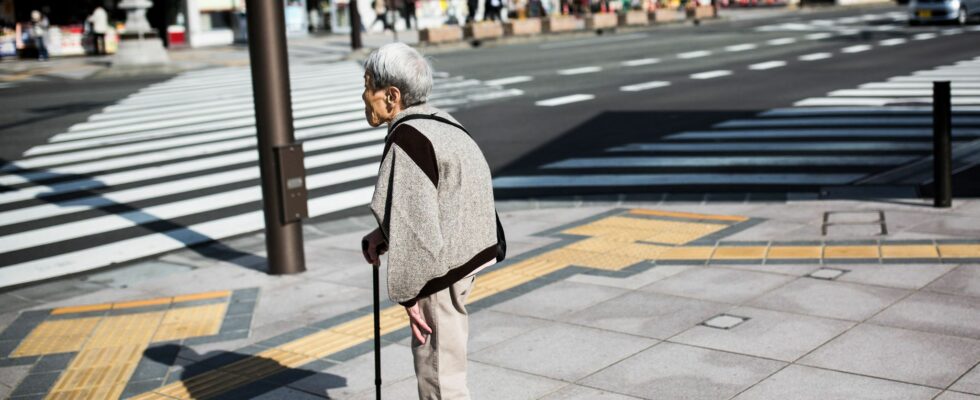With his glasses with round and square lenses and his hoodies, you don’t take Yusuke Narita seriously, especially when he proclaims loud and clear that he has found a way to solve the problem of accelerated aging in Japan, but also the prohibitive costs of retirement and Social Security: “The only solution is quite clear, he declared at the end of 2021 during a program on the Abema site: the mass suicide of the old!” Since then, this assistant professor at the prestigious American University of Yale, who works on algorithms dedicated to education and health, persists: “The obligation of euthanasia, he says, will be debated in the near future.” His outings have given him a certain notoriety, especially among young people, in a country which devotes a third of its budget to health expenditure. His Twitter account has more than 580,000 subscribers. “The things you are told not to say are usually true,” he says.
Suicide calls
Since the beginning of the year, his remarks have attracted the attention of major media and critics alike. In the very serious weekly Diamond, journalist Masaki Kubota considers his calls for suicide “reckless” and appeals to his responsibility as a researcher. “It was because authoritative intellectuals affirmed that it was good for the future of Japan that the 1948 legislation providing for the sterilization of disabled people was passed,” Kubota recalls, about a text marked by the eugenic theories which claimed thousands of victims. In Newsweek, columnist Masato Fujisaki speaks of “incitement to hatred” and worries about the media’s indifference to these statements. “Remarks highlighting ethnicity, sexuality or age, in a situation where society is facing difficulties, quickly degenerate into hate speech”, he is alarmed.
Added to this is a fundamental remark: “eliminating the old” would not solve the fundamental problem of Japanese demography: the absence of births. There were less than 800,000 in 2022, unheard of since the first statistics appeared in 1899.
Faced with criticism, the destroyer of taboos defends himself awkwardly. He regrets not having “been careful about the potential negative connotations” of his remarks and presents his call for suicide as an “abstract metaphor”. Above all, he said, he wanted to highlight his concerns about Japan, where nearly 30% of the population is over 65, 11.4% is under 14, and where the population will drop below 100 million by 2050. – against 124.8 today.
The “burden of old people”, from fiction to reality
Narita’s embarrassment is hardly surprising in an archipelago known for its respect for hierarchy and elders. However, the fate of the elderly is regularly debated there, and even inspires creators. A legend has it that families once dumped elderly or infirm relatives in the mountains. It was the“basute” (literally “to abandon an old woman”), a custom at the heart of Shohei Imamura’s film, The Ballad of Narayama. In 2022, director Chie Hayakawa presented at the Cannes Film Festival Map 75. Anyone over the age of 75 was encouraged to sign an agreement with the government, which offered them money in return for agreeing to be euthanized. Fiction, really? In 2013, Finance Minister Taro Aso called on the elderly to “hurry to die” to relieve the state coffers. And in 2016, Fuji TV presenter Yutaka Hasegawa was fired for writing on his blog that patients who end up on dialysis because of their lifestyle habits and cannot pay co-payments should be “killed”. .
For her part, actress and businesswoman Nana Takamatsu criticized Narita’s statements. But she is no less worried about the aging of society and, above all, the influence of seniors on power. In June 2022, she had proposed the introduction of a “life expectancy-based electoral system” in which the value of a vote would decrease with age. She had been reviled for denying equal voting rights.
